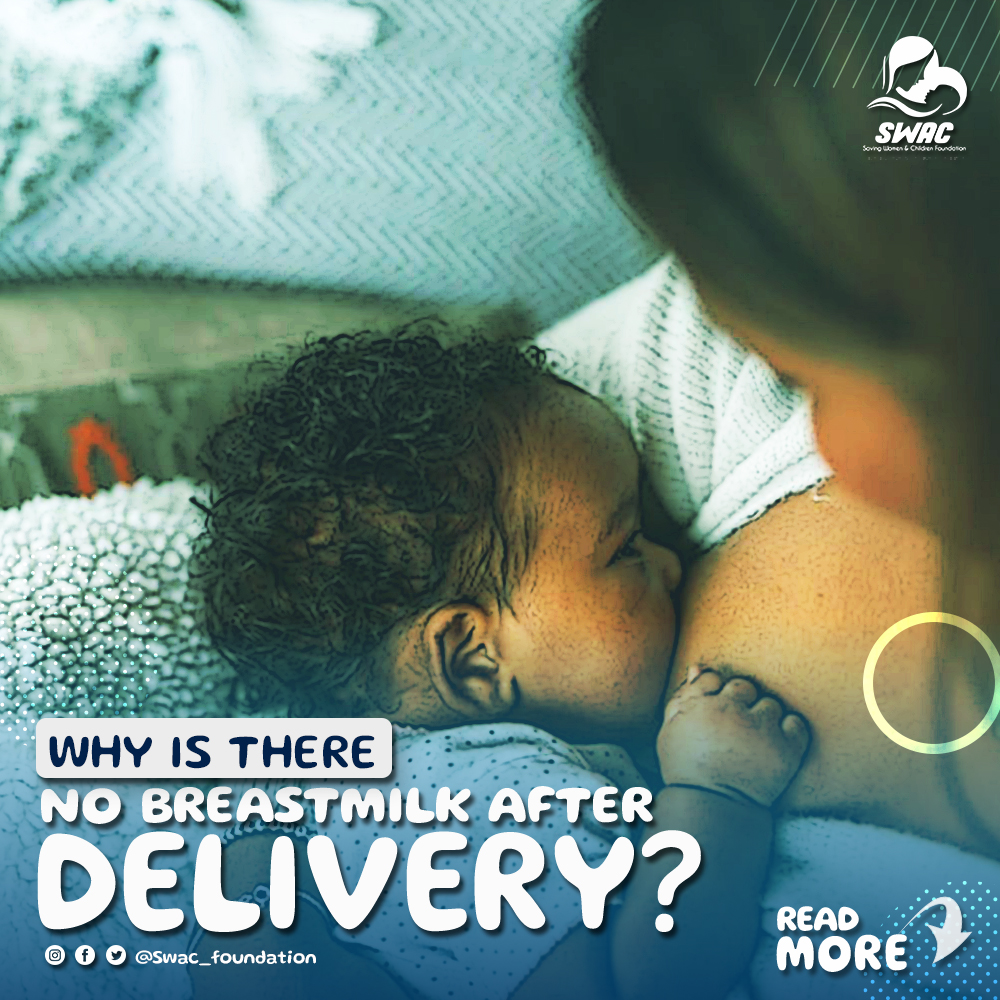Delayed onset of lactation’ is the term applied to a condition wherein the breast milk is slow to come in. A delay in the production of breast milk, however, does not mean it will not arrive at all.
Under normal circumstances, colostrum is available in the mother’s breast within 40 hours of delivery. Breast milk generally takes two-three days to arrive. In some cases, breast milk may take up to five days to arrive.
Here are the underlying causes of little or no breast milk after delivery:
👉🏼Stress, Hormonal Imbalances, lifestyle; A sedentary lifestyle, improper diet, indulgence in alcohol, drugs, habitual smoking, and high caffeine intake can impact the production of breast milk, Taking Certain Medications and Herbs Like birth control medications, Stressful Delivery. Storage Size; The amount of milk produced and stored in a woman’s breast is not related to the size of the breasts themselves, but the amount of milk-producing tissue in them, Administration of too much IV fluids during birth could delay the onset of lactation, Placenta remnants, Painkillers, Certain pain relief medications, if administered during labor, can delay the onset of lactation, Premature Birth, Diabetes, One of the important hormones for breast milk production is insulin,
Age: Giving birth at an advanced age.
✅Hand Express Breast Milk, Massage Your Breasts, Increase Skin to Skin Contact: Skin to skin contact, where you hold the baby close to you and let his skin rub against yours, is known to stimulate the production of milk, Avoid taking any medications for any other health issues, without your doctor’s approval, as some are known to decrease or delay the production of breast milk.
It is also advisable to be open to formula milk or donor human milk till the onset of lactation.
Breastfeeding is part of nature’s beautiful design to create a bond between mother and child. Breast milk not coming in at all is extremely rare and highly unlikely. It is advised to consult doctors and lactation specialists to address the condition.

